Digital 52 1️⃣7️⃣ - Working with Corporate Companies, Educating society on makerspace and coworking, The importance of a great team: the story of The DECK.

What’s the link between coworking and education? Let’s make our way to Osaka, Japan to find out how The DECK is providing a multi-purpose space for makers, employees of larger companies, and curious minds to learn, experiment, and work together.
Business Models - Innovation - Facilitating Collaboration
Read the story of The DECK on page 274 of “Around The World in 250 Coworking Spaces”.
Starting a coworking space from scratch is a difficult and personal journey. Each experience is unique, but there is much to learn from those who have done it. We asked 250 coworking spaces featured in our book "why" they started, and interestingly, no two answers were alike. What does this highlight? That thanks to its very flexible model (remember what we say: coworking is the same dish everyone cooks differently), coworking often comes as a great solution to many. Where are we getting with this? Well, in Osaka, a second-tier city in Japan, coworking has played a role in fostering collaboration and connection among the diverse businesses that contribute to the city and the Kansai region's unique character. Brands like The DECK, the coworking space you are about to explore, was a pioneer in promoting a more collaborative work environment. Continue reading to learn more.
➡️ A little refresher
Who’s behind the featured space?
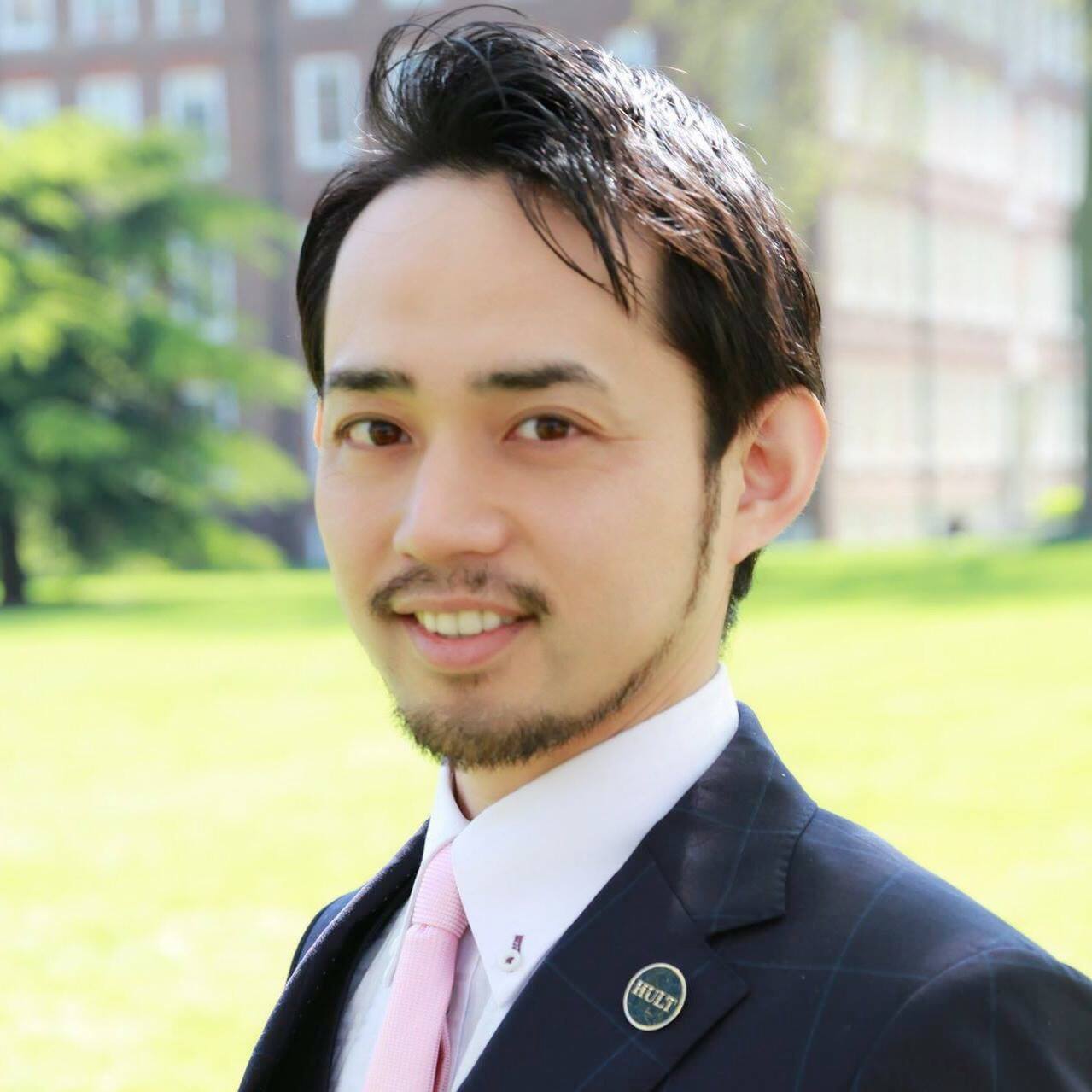
Tomokazu Morisawa, the Founder and CEO of The DECK, explains his motivation for creating the space: "While working at a consulting firm called Filament that leads the open-innovation scene in the Kansai region, I saw the need for a place where corporations could connect with freelancers, startups, and other companies to collaborate with an open innovation mindset. So in late 2015, I founded The DECK.
➡️ Key Figures
- Opening year: 2016
- Size when they started: 600 sqm (6,000 sqft)
- Size today: same
➡️ A little tour around The DECK
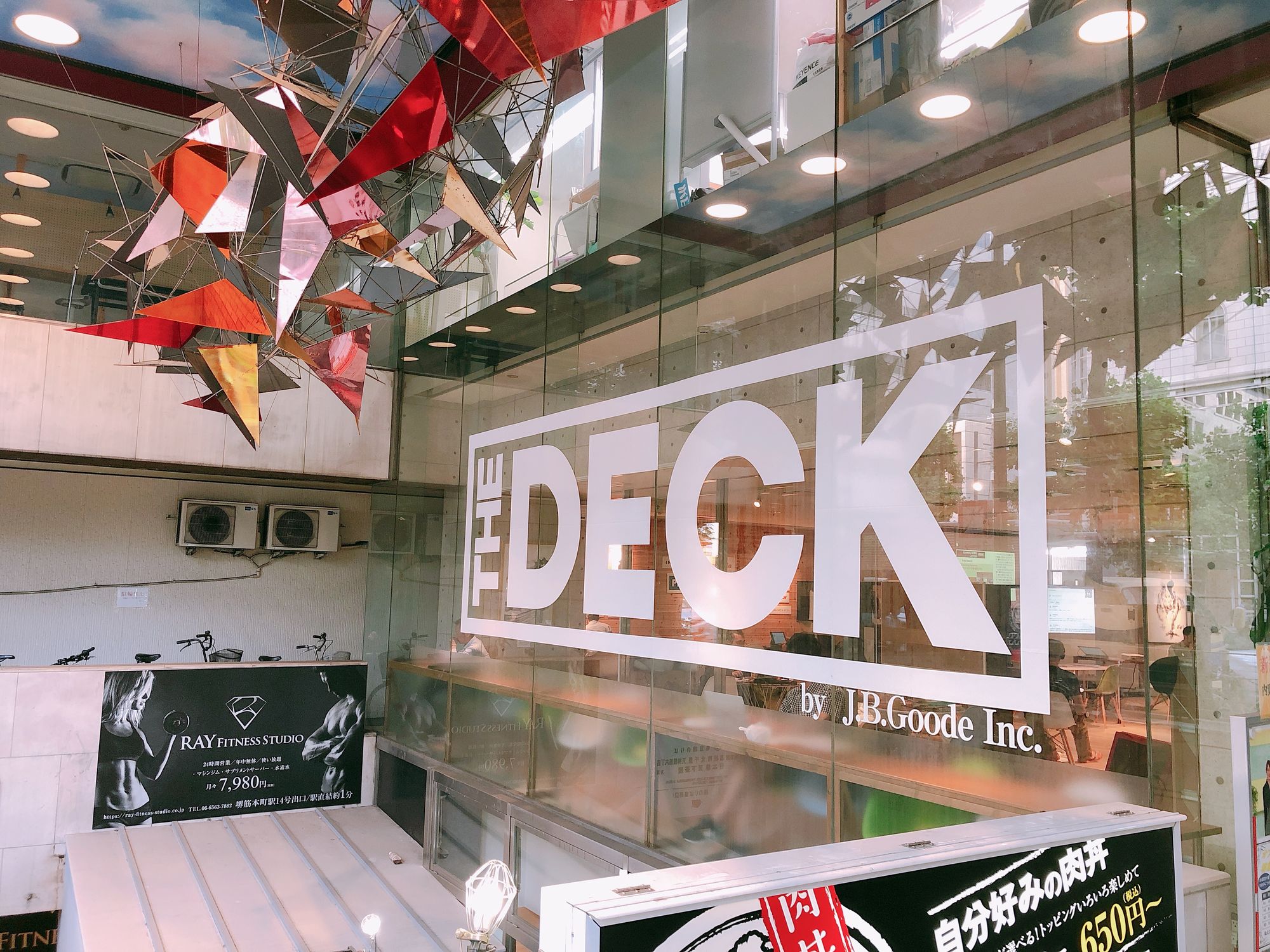
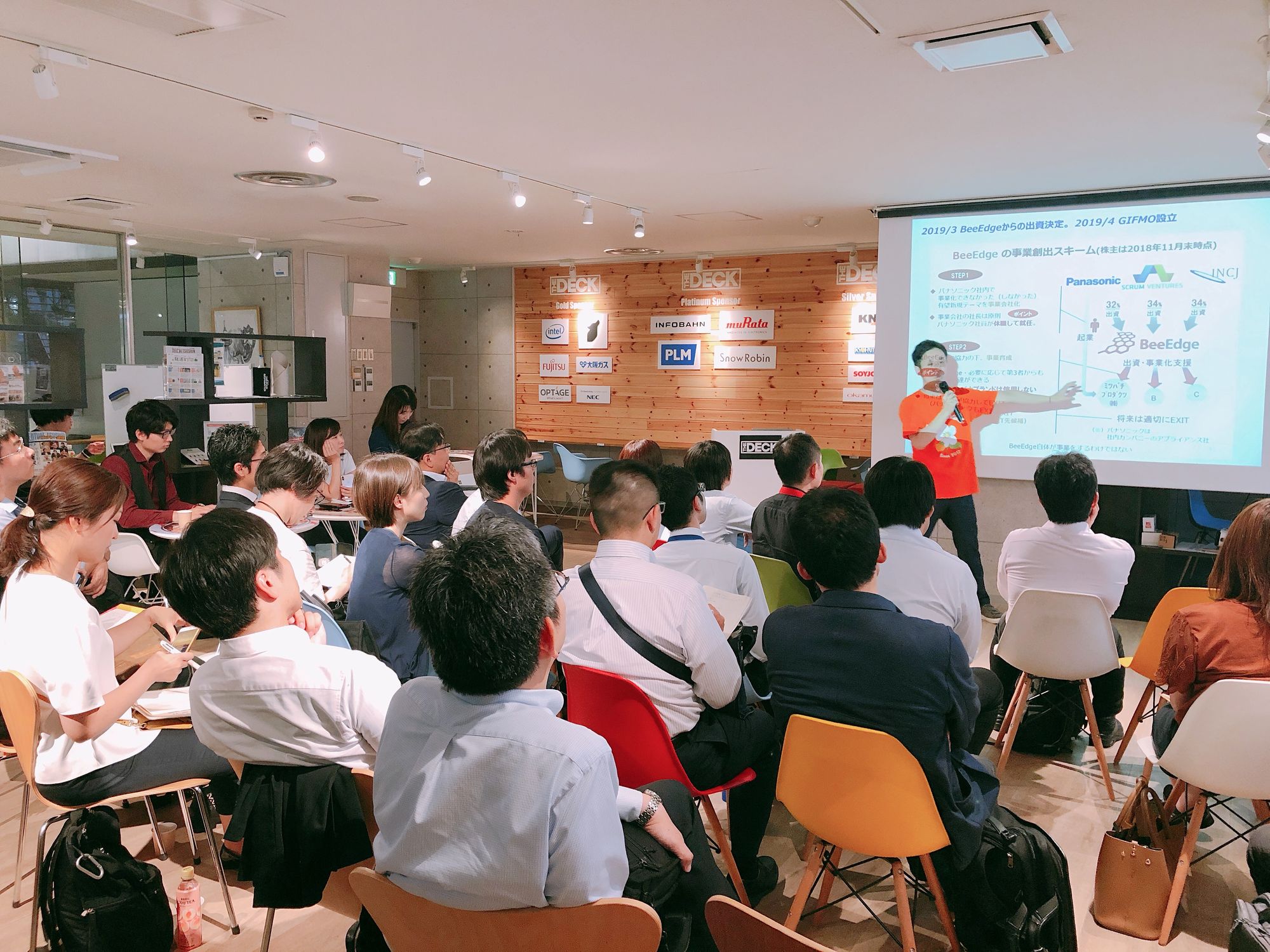
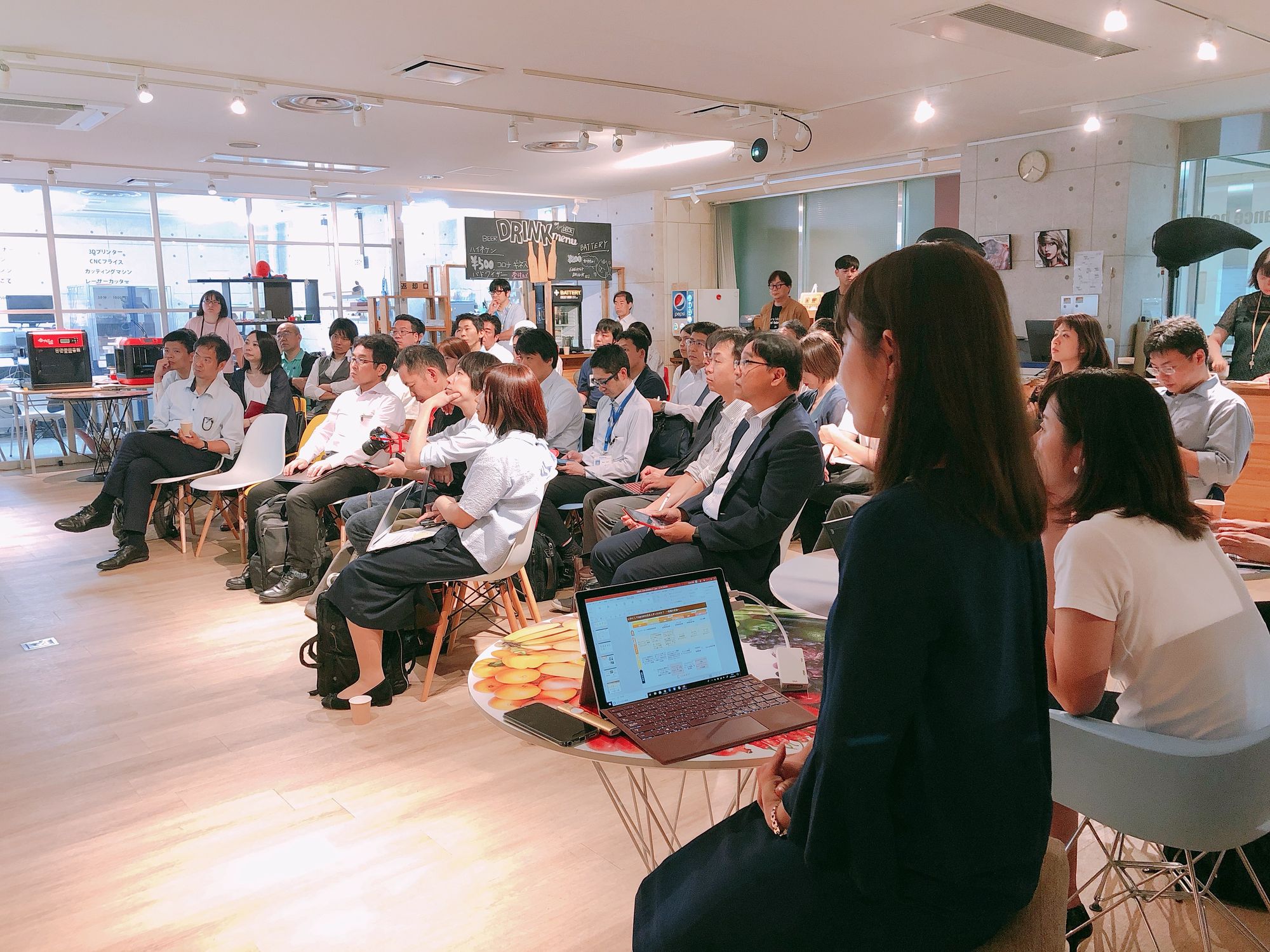
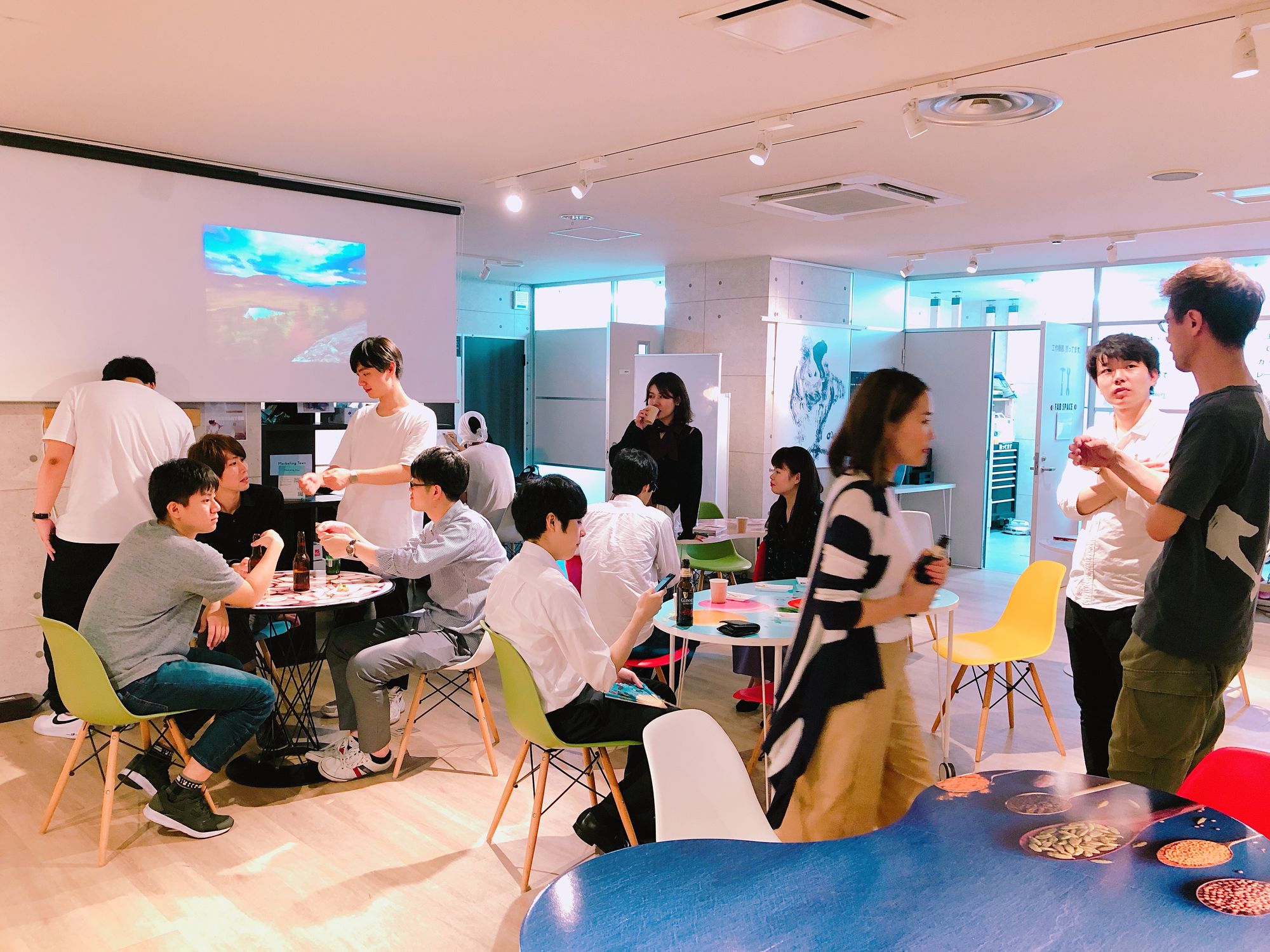
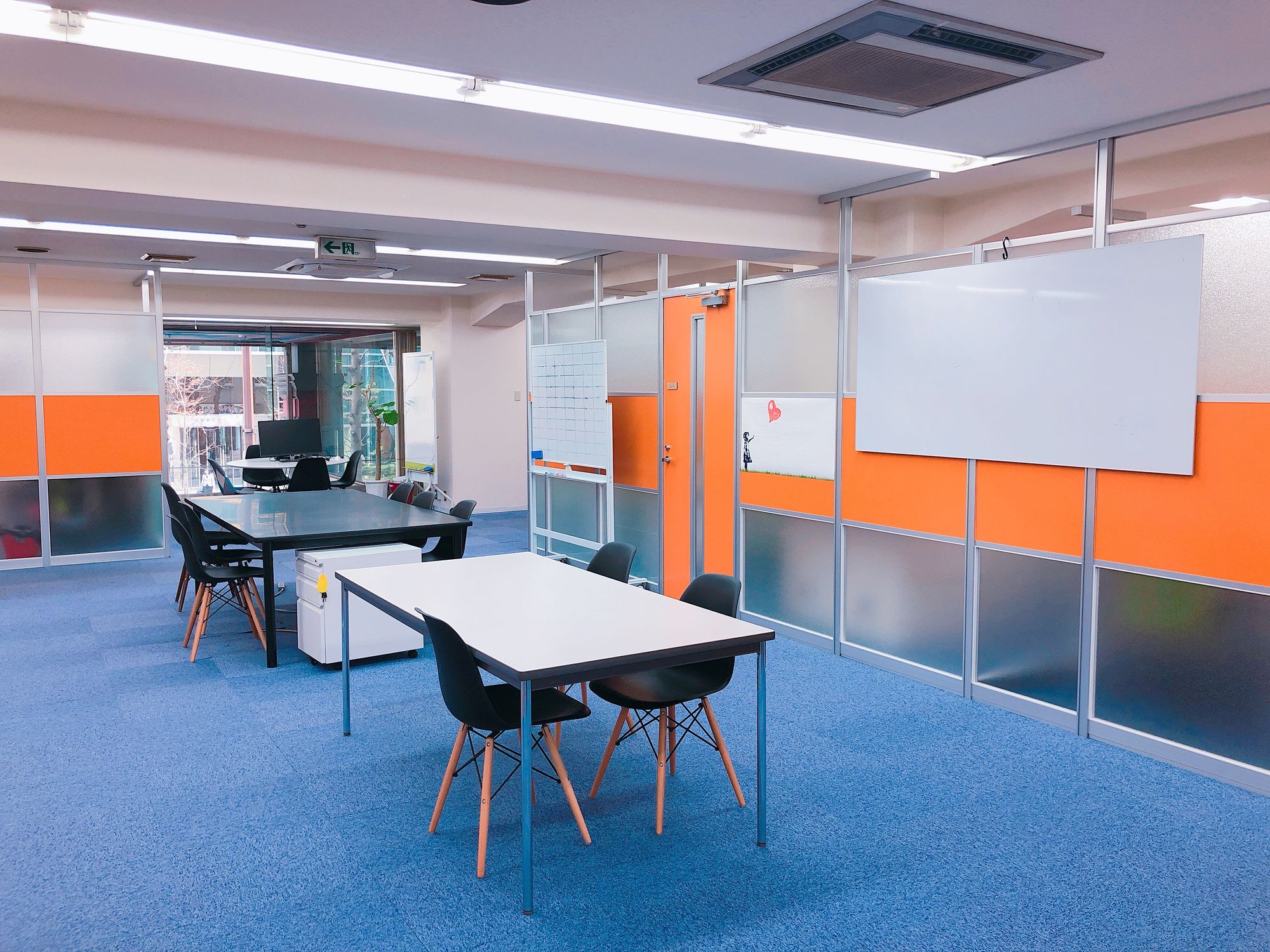
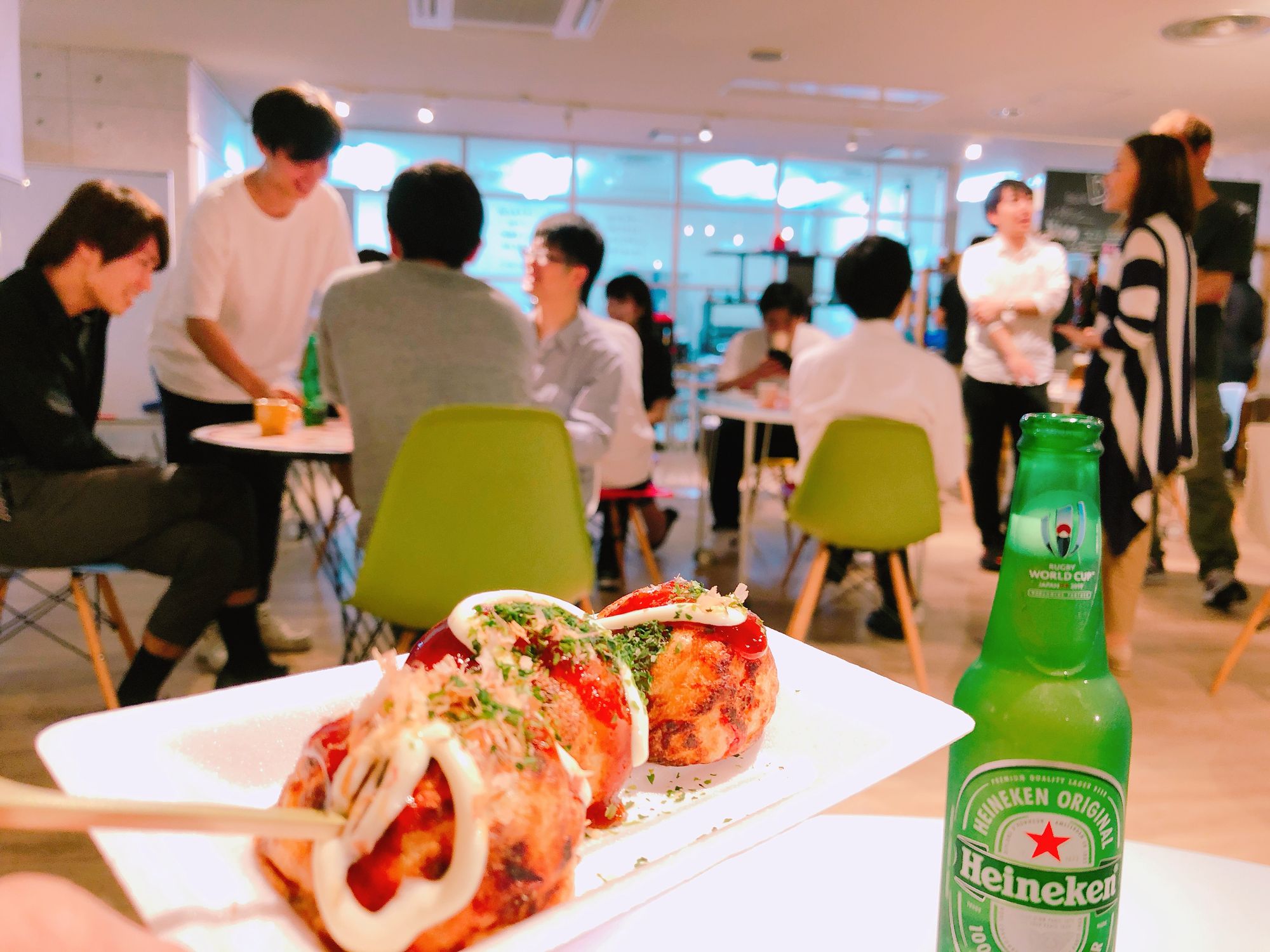
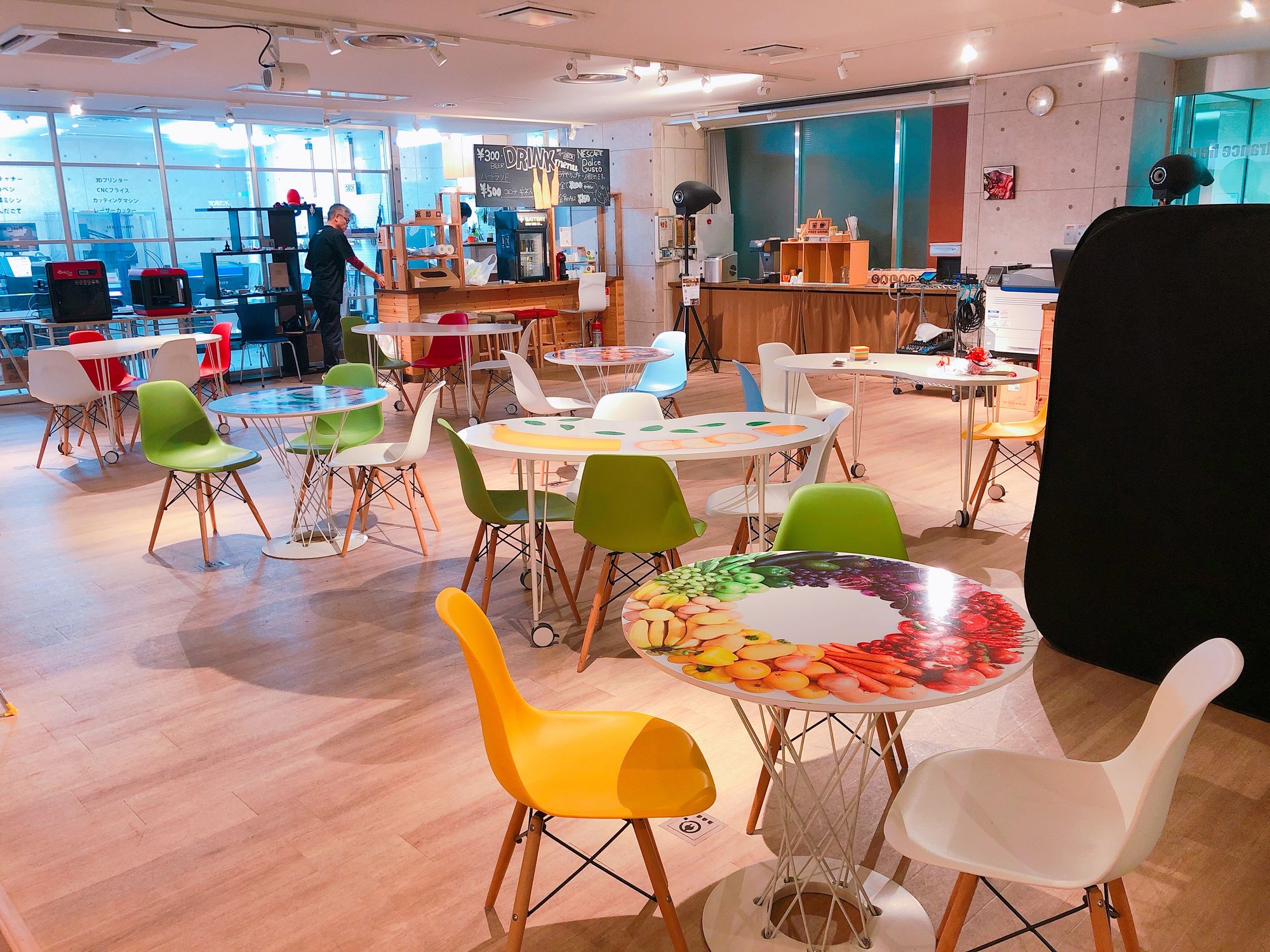
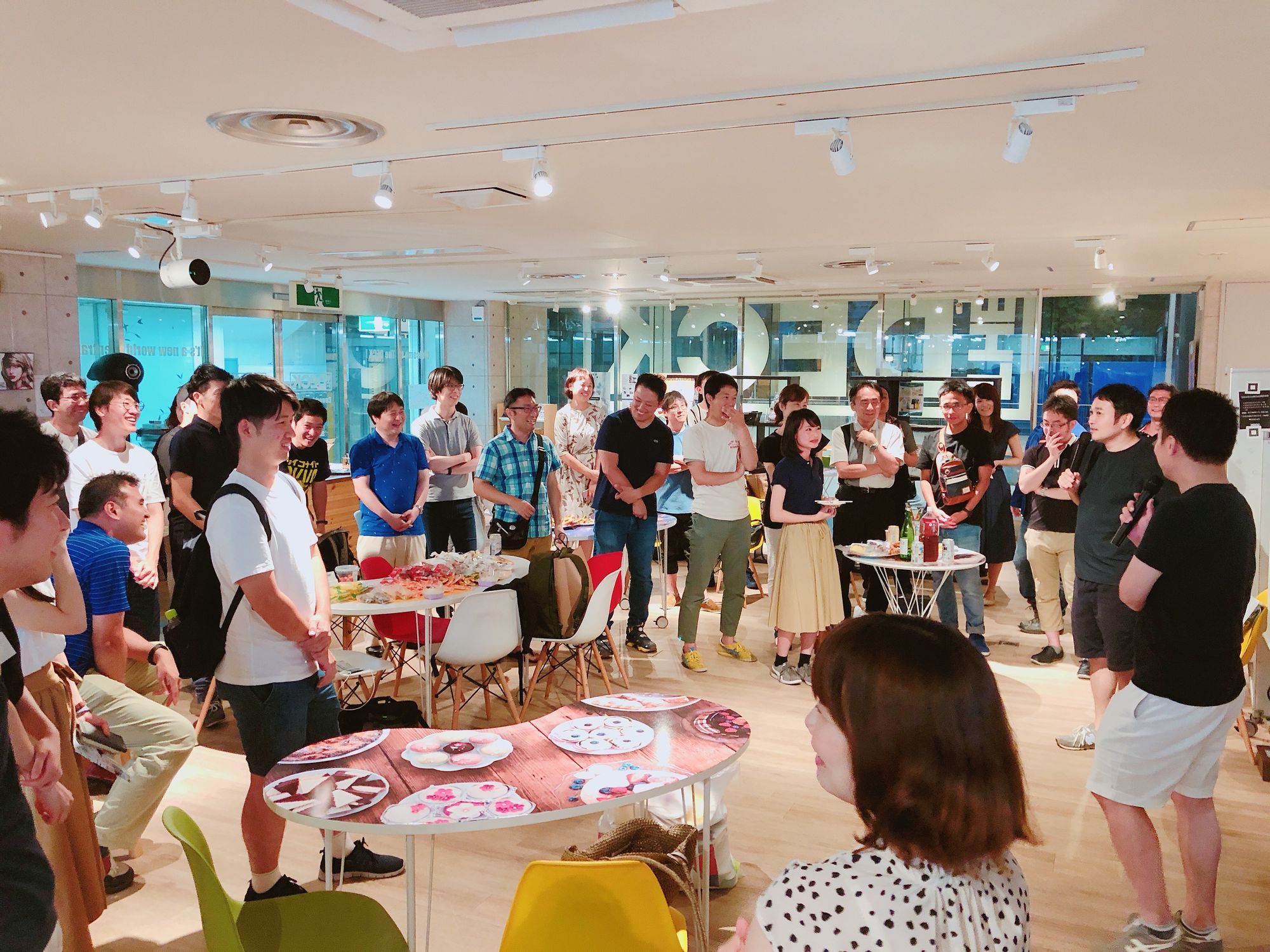
➡️ Behind-the-scenes
Things you didn't read in aw250cs
"The DECK is inspired by the idea of an aircraft carrier deck, which serves as a platform for new business development for corporates and startups. The DECK provides a range of support functions, including co-working space, event space, maker space, and shared office, to help individuals achieve their entrepreneurial dreams.”
“At the start, and due to our limited budget, we opted for stylish, self-assembling furniture and enlisted volunteers to help assemble the chairs and tables. Additionally, some of the table tops feature pictures printed using the professional large printers in our makerspace.”
"Due to Covid-19, we suddenly lost connection with one another and realized that even though we thought we were working alone, we were actually collaborating all the time. Therefore, activities and interactions have become even more important."
Tomokazu Morisawa, Founder and CEO at The DECK
The Deck
📍Osaka, Japan - 34°40’59.0”N 135°30’22.4”E
➡️ The DECK Today
As life is finally returning to a more normal state in Japan, the timing to catch up with Tomo felt just right. We were curious to understand how The DECK navigated through the pandemic, but beyond that, we wanted to know how their members, who for a big part, are employees of larger corporations, are now using and perceiving the space. Did we get surprised by what we learned from Tomo? Absolutely! Are you about to get surprised too? You tell us!
💫 2 Major Changes
As we always say with Coworkies “Great teams make Great Coworking Spaces”. You are about to discover how the return of 1 employee propelled things to new heights for The DECK.
What has the pandemic changed for The DECK? New demands for certain types of amenities that were not there before, pushed Tomo and his team to get creative on how to make it happen. The good part is, when you run a makerspace, you have the tools you need at hand to build great things!
💬 I’d like to start by asking you: what’s new at The DECK since the last time we spoke?
One of the biggest changes we have had since then was the return of a staff member who had been on maternity leave. She is incredibly powerful and her return has allowed us to quickly expand our operations. Without her, we wouldn't have been able to accomplish many of the things we have achieved so far, making her return one of the biggest developments for us since then.
💬 How many people were you before she came back?
Before she went on maternity leave, she was the only permanent employee at our company. Just three months after she joined us, she got pregnant, which was an unexpected situation. Until then, I was the only person running the team and because of her absence, I had to prepare and hire several part-time staff to cover the loss. In total, I hired four part-time workers. While she returned to work in April, a few of the part-time staff I had recruited to maintain operations during her absence, continue to work with us.
💬 The DECK has been created in 2015 to, and I quote you here, “connect corporations with professionals from other corporations, as well as freelancers and startups to collaborate with an open innovation mindset.” Why did you feel it was important at the time to connect all those different parties together?
The situation has become even more important than before because we have realized that physical interaction and in-person meetings are more valuable, despite advancements in our remote work environment and technology. We value in-person meetings more than ever, and in order to facilitate this, we have taken risks by maintaining a physical space.
Maintaining a physical space does come with costs and limitations, but it allows for in-person meetings and interactions that foster creativity, conversation, and unexpected encounters with others that cannot be achieved through daily activities. This kind of environment has become more important than ever. Before the Covid-19 pandemic, many companies and individuals were working independently, but we have come to realize the importance of in-person interaction.
Due to the Covid-19 pandemic, we suddenly lost connection with one another and realized that even though we thought we were working alone, we were actually collaborating all the time. Therefore, activities and interactions have become even more important. Having unexpected encounters and exchanging opinions leads to the generation of new ideas and projects.
💬 How was the coworking/makers scene in Osaka back in 2015 and how did you educate people about what you wanted to do with The DECK?
We opened our physical space in January 2016, but the idea for it started in 2015. At that time, there were not many coworking spaces in the Kansai region, which includes Osaka. This region is known as a manufacturing city, with many large manufacturing companies such as Panasonic, Sharp, and Sony. Even though the Kansai region is known as a manufacturing city, there were not as many coworking spaces as in Tokyo. We believed that this was something missing in the region and decided to create a coworking space to bring value to society.
In terms of educating people about what we do, we have taken a few actions. One is to hold workshops on topics such as how to use laser cutters or 3D printers, providing engaging content. Another approach is to hold events that introduce our facilities and what makes us unique. This way people can learn about us and what we offer.
💬 You mentioned that you work with a variety of organizations, including corporations, freelancers, and startups. Can you speak to the challenges you face when working with larger companies versus smaller businesses?
Even though representatives from large companies may be in our community, they may not have the authority to make decisions on their own. This is a common situation in Japanese corporate structures.
One of the challenging aspects of working with large corporations is the difficulty in having direct conversations with decision-makers. This can lead to delays in the design and implementation process. However, due to their cautious nature, once they do give the green light, they are more likely to fully commit to the project.
💬 In your initial conversation, you spoke a bit more about your business model, which is centered around corporate sponsorship. Can you explain to me what it means and how does it work in practice?
Japanese corporations are always seeking opportunities for innovation, but they often feel constrained in their growth. They have the resources to invest and want to explore multiple areas of innovation without really knowing how to do that. Our corporate sponsorship, or corporate use membership, is one such opportunity where employees of a company can use our space as much as they want within certain limits.
💬 What’s the biggest change the pandemic has brought to The DECK?
To be honest, we haven't had any significant changes because of the Covid-19 pandemic. However, one of the things we introduced during the pandemic was small, enclosed spaces for personal use during Zoom or Google Meet meetings. These spaces are useful for people who want privacy and don't want to be disturbed by others during their meetings. This is in contrast to our larger meeting spaces, which can be too big for one person's needs.
These are the things we introduced during the pandemic, due to the increased demand. Interestingly, the Japanese government is now lifting restrictions, and people who work for companies are returning to their offices. However, it's ironic that even though they're not working from home, they're still spending the whole day in small, cramped spaces. As a result, companies are now introducing more personal spaces, rather than having large, open office spaces.
💬 With an increase in teleworking in Japan, do you believe that smaller size of homes could lead to a greater demand for shared office spaces like yours?
Generally speaking, Japanese houses tend to be small and may not be the most ideal work environment. During the early days of the pandemic, many people found themselves working from home, which presented challenges as the spaces were not always conducive to working five days a week. To overcome this, some people invested in ergonomic equipment such as comfortable chairs, desk risers, headsets, and PC stands to improve their home office setup.
This investment could be made personally but some companies even provided financial support for employees to improve their home office setup. As a result, many Japanese people have grown accustomed to remote work and some have even come to prefer it.
While many people have adapted to remote work and find it to be a comfortable and productive environment, I believe that some individuals prefer to have a separate workspace outside of their home, which is where The DECK comes into play.
➡️ Reflections on building The DECK
💬 What has been your biggest learning out of bringing to life AND growing The DECK?
I have discovered that I am someone who enjoys connecting people and facilitating interactions. I find that having a physical space provides a great opportunity for this. We have many interesting and insightful people visiting every day and being here all the time allows me to observe these interactions. However, I often find myself wanting to introduce someone I met today to someone I met yesterday, but unfortunately, they are no longer here.
This is a situation that I often find myself in. I realized that I want to facilitate connections like this even more and it excites me to see the positive outcomes that can come from it. For example, thanks to my introduction, two people were able to start a new project together and their business is now growing.
This experience has taught me that this is something I am passionate about and I hope to see more of these kinds of connections in the future.
💬 What would be your best advice to someone thinking about opening a coworking space?
I believe it's important to focus on what sets your coworking space apart from others, particularly in Japan where the market is becoming increasingly saturated. While we may be behind Western countries in terms of the number of coworking spaces available, we do have more variety in terms of the type of spaces offered. However, with the market becoming more competitive, it's crucial to have unique characteristics that set your space apart in order to attract members. Without these distinct features, it can be difficult to stand out and grow your membership base.
💬 If you could chat with coworking operators now, what would you like to ask them?

💬 And if you could chat with coworking members?
What can we improve?
💬 Last but not least, what’s your biggest dream for The DECK?
We are not focused on rapidly expanding the number of our coworking spaces, as we believe that fostering meaningful interactions and conversations among our users and members is more important. While some coworking spaces prioritize a quiet environment with fast Wi-Fi and comfortable furniture, they may not provide opportunities for mutual communication.
In contrast, we place a strong emphasis on fostering connections and conversations among our members and visitors. This is something that is difficult to replicate and would require a significant investment in human resources. Therefore, if we were to expand, we would prefer to do so overseas rather than in cities like Tokyo.
Thanks for reading until the end! Join us on Discord to meet fellow readers and coworking lovers.

Before you go, don’t forget to book your ticket to our monthly online event, happening on January 31st. This month, we’ll be exploring how the metaverse, web3, DAOs, NFTs, AI, Blockchain, and Cryptos are impacting coworking spaces. Come learn with us!

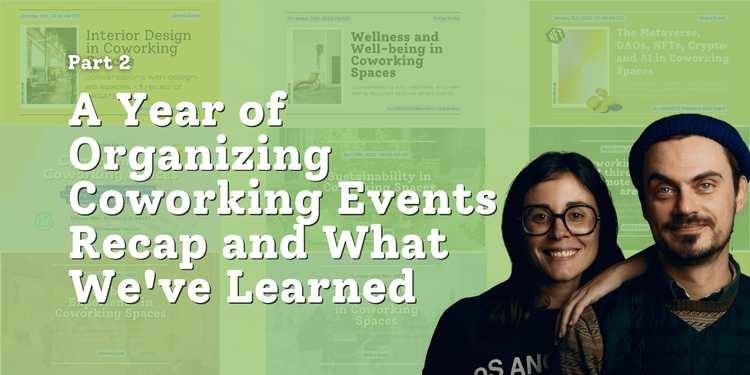




Member discussion